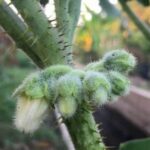Cow manure has long been recognized as a valuable resource for gardeners looking to improve the health and productivity of their vegetable gardens. It is a natural and organic fertilizer that can provide essential nutrients to the soil, promoting robust growth and abundant harvests. In this article, we will explore the benefits of using cow manure in vegetable gardens and delve into its nutritional value for enriching soil quality.
Cow manure is the waste product produced by cows, consisting of feces and urine. It contains a rich blend of organic matter, decomposed plant material, and beneficial microorganisms that can greatly enhance the fertility and structure of the soil. For centuries, farmers have recognized the value of cow manure as a natural fertilizer that helps plants grow stronger, healthier, and more resilient.
Using cow manure in vegetable gardens offers several key benefits. First and foremost, it provides essential nutrients such as nitrogen, phosphorus, and potassium – often referred to as NPK – which are vital for plant growth. These nutrients are released slowly over time as the manure breaks down, ensuring a steady supply of nourishment for growing crops.
Additionally, cow manure improves soil structure by increasing its water-holding capacity and improving drainage. This allows roots to access water and nutrients more effectively while preventing stagnation or waterlogging.
Benefits of Using Cow Manure in Vegetable Gardens
Cow manure has long been recognized as a beneficial resource for vegetable gardens. Its use can greatly enhance soil quality, leading to healthier and more productive plants. There are several key benefits of using cow manure in vegetable gardens that make it a popular choice for many gardeners.
Firstly, cow manure is rich in nutrients that are essential for plant growth. It provides a combination of nitrogen, phosphorus, potassium, and other minerals that support plant development. These nutrients are slowly released into the soil over time, ensuring a steady supply for the growing season. This helps to promote strong root growth, lush foliage, and abundant yields of vegetables.
In addition to providing essential nutrients, cow manure also improves soil structure. It helps to increase the water holding capacity of sandy soils and improve drainage in heavy clay soils. Cow manure is also known for its ability to enhance soil fertility by improving the composition and balance of organic matter in the soil. This promotes beneficial microbial activity, which aids in breaking down organic materials and releasing additional nutrients for plant uptake.
Using cow manure in vegetable gardens is not only beneficial for plants but also for the environment. Cow manure is considered an organic and sustainable option for gardeners who are conscious about reducing their carbon footprint. By recycling this natural byproduct instead of relying on synthetic fertilizers or chemical additives, gardeners can contribute to a more eco-friendly gardening practice.
Overall, utilizing cow manure in vegetable gardens provides numerous benefits including improved soil quality, increased nutrient availability, and sustainable gardening practices. Its use can help gardeners achieve healthy and thriving vegetable crops while minimizing environmental impact. By understanding these benefits and how to properly handle and apply cow manure in the garden, gardeners can harness its potential as a natural and effective resource for their vegetable gardens.
Nutritional Value
Cow manure is not just a waste product; it also provides valuable nutrients that can greatly benefit the soil quality in vegetable gardens. This section will delve into the nutritional value of cow manure and how it contributes to improving soil health.
Nutrient-rich Composition
One of the main reasons why cow manure is beneficial for soil quality is its nutrient-rich composition. Cow manure contains a variety of essential nutrients that are vital for plant growth, such as nitrogen (N), phosphorus (P), and potassium (K).
Nitrogen is important for leafy growth, phosphorus promotes root development, and potassium enhances overall plant health and disease resistance. These nutrients are released slowly over time as the organic matter in cow manure decomposes, providing a steady source of nourishment for plants.
Improved Soil Structure
Besides being nutrient-rich, cow manure also helps improve soil structure. It enhances soil fertility by increasing its organic matter content, which in turn improves moisture retention and aeration. The organic matter in cow manure acts as food for beneficial microorganisms, earthworms, and other soil organisms that contribute to healthy soil ecosystems. As these organisms break down the organic matter, they create tunnels and channels within the soil structure, improving drainage and preventing compaction.
Enhanced Water Holding Capacity
Another advantage of using cow manure in vegetable gardens is its ability to enhance water holding capacity in the soil. The organic matter present in cow manure acts like a sponge, absorbing and retaining water more effectively than sandy or clay soils alone. This increased water-holding capacity reduces irrigation needs and allows plants to access moisture even during periods of drought or dry spells.
Organic and Sustainable
Cow manure is not only beneficial for vegetable gardens but also a great choice for eco-conscious gardeners. Using cow manure in your garden promotes organic and sustainable practices that are better for the environment. Here are some reasons why cow manure is an excellent option for eco-conscious gardeners:
- Natural Fertilizer: Cow manure is a natural fertilizer that provides essential nutrients to the soil. It contains a balanced mixture of nitrogen, phosphorus, and potassium, which are all crucial for plant growth. Using cow manure can improve soil fertility and enhance overall plant health without the need for synthetic fertilizers, which can be harmful to the environment.
- Soil Conditioning: Adding cow manure to the soil improves its structure and enhances its ability to retain moisture. The organic matter in cow manure helps loosen compacted soils, allowing roots to penetrate easily and water to flow freely. This prevents soil erosion and nutrient runoff that can pollute water sources.
- Waste Recycling: Utilizing cow manure in vegetable gardens helps recycle agricultural waste that would otherwise end up in landfills or create environmental problems like water pollution. By using cow manure as compost or directly applying it to garden beds, you contribute to a circular economy where waste is transformed into valuable resources.
To maximize the benefits of cow manure usage, proper handling and application techniques should be followed. Always wear gloves when handling fresh manure to prevent potential contamination with harmful bacteria or parasites. It’s important to age or compost cow manure before using it in vegetable gardens to reduce the risk of pathogens.
In summary, choosing cow manure for your vegetable garden aligns with eco-conscious principles by promoting organic practices, recycling waste, and minimizing environmental impact compared to synthetic fertilizers. By harnessing the power of this natural resource, you can achieve healthy and sustainable gardening while nurturing your plants and preserving the planet.
Safe Handling and Application of Cow Manure in Vegetable Gardens
Using Gloves and Protective Clothing
When handling cow manure, it is important to prioritize safety. As with any organic material, there is a potential risk of exposure to bacteria and pathogens that may be present in the manure. To minimize this risk, it is recommended to wear gloves and protective clothing when handling cow manure.
Gloves serve as a barrier between your skin and the manure, reducing the chances of contamination. Additionally, wearing long sleeves and pants can further protect your skin from coming into direct contact with the manure.
Proper Application Techniques
To ensure that cow manure is used effectively in vegetable gardens, it is crucial to apply it properly. Avoid applying raw or uncomposted cow manure directly onto plants or near the roots, as it may cause nutrient burn or root damage due to its high nitrogen content. Instead, incorporate it into the soil by mixing it thoroughly before planting. This will allow for proper distribution of nutrients throughout the soil and prevent burning or damaging the plant roots.
Another important aspect of application is maintaining an appropriate ratio of cow manure to other organic matter in your garden. It is recommended to use a 1:1 ratio of composted cow manure to other compost or organic materials in order to achieve a balanced nutrient profile in your soil.
Avoiding Contamination
It is crucial to avoid any potential contamination when applying cow manure in vegetable gardens. To do so, make sure that the cows from which you sourced the manure are not treated with antibiotics or hormones that could be harmful to plants or humans consuming them. Furthermore, if possible, choose suppliers who follow strict hygiene practices and regularly test their products for contaminants.
In addition to avoiding contamination from the source, practice proper sanitation after handling cow manure. Wash your hands thoroughly with soap and water after working with it, especially before consuming any food. This simple step can prevent the spread of bacteria and reduce the risk of foodborne illnesses. By being diligent in safe handling and application practices, you can ensure that cow manure is a valuable resource for your vegetable garden without compromising safety.
Composting Cow Manure
Composting is a valuable technique for optimizing the nutrient content of cow manure used in vegetable gardens. Composting not only helps to break down the manure, but it also transforms it into a rich and stable organic matter that provides essential nutrients for plant growth. Here are some tips and techniques for composting cow manure to ensure maximum nutrient benefits.
Firstly, it is important to create the right conditions for composting. Cow manure should be mixed with carbon-rich materials such as straw or dry leaves to provide a proper carbon-to-nitrogen ratio. A ratio of 3 parts carbon to 1 part nitrogen is recommended. This balance helps maintain an optimal temperature and moisture level within the compost pile, promoting efficient decomposition.
Turning the compost regularly is crucial for evenly distributing heat and oxygen throughout the pile. This encourages the growth of beneficial bacteria and other microorganisms that break down the manure and transform it into nutrient-rich humus. Turning the pile once every few weeks using a pitchfork or shovel can help speed up the decomposition process.
Monitoring moisture levels in the compost pile is also essential. Ideally, the moisture content should be around 50-60%. If the pile becomes too dry, it may slow down decomposition, while excessive moisture can lead to unpleasant odors and promote the growth of harmful pathogens. Regularly checking and adjusting moisture levels by sprinkling water or covering with a tarp during heavy rain can help maintain an ideal balance.
Additionally, adding other organic materials like kitchen scraps or grass clippings can enhance nutrient diversity in the compost pile. These additions contribute additional nitrogen and micronutrients that are beneficial for plant growth. However, it’s important to avoid including any diseased plants or invasive weeds in your compost, as they can spread diseases or reproduce in your garden when applied.
By following these tips and techniques for composting cow manure, you can optimize its nutrient content and create a high-quality organic soil amendment for your vegetable garden. Compost enriched with cow manure provides a slow-release supply of nutrients to plants, improves soil structure and moisture retention, and enhances overall soil health.
Understanding Cow Manure Varieties
Cow manure is not a one-size-fits-all resource for vegetable gardens. Understanding the differences between fresh and aged manure can help gardeners make informed decisions about which variety to use in their vegetable gardens.
Fresh cow manure refers to the excrement that has been recently produced by cows. It is high in nitrogen and moisture content, making it an excellent source of nutrients for plants. However, the high nitrogen content can be detrimental if applied directly to vegetables, as it may cause burning or nutrient imbalance. Therefore, it is crucial to compost fresh cow manure before using it in vegetable gardens.
Composting cow manure involves allowing the material to decompose over time, which helps eliminate harmful pathogens and reduces nitrogen levels. During the composting process, microorganisms break down the organic matter in cow manure into humus-rich compost, which improves soil structure and fertility.
Gardeners can create a compost pile using a combination of fresh cow manure, plant waste such as leaves or grass clippings, and other organic materials like kitchen scraps. Regularly turning the pile will speed up decomposition and ensure a well-balanced compost.
On the other hand, aged or well-rotted cow manure refers to excrement that has gone through a longer decomposition period than fresh manure. Aged cow manure has lower nitrogen levels but remains rich in essential nutrients such as phosphorus and potassium. It also contains higher levels of beneficial microorganisms that help break down organic matter further and improve soil health. Gardeners can apply aged cow manure directly to vegetable gardens without composting it first.
Potential Risks and Precautions
Using cow manure in vegetable gardens comes with some potential risks and precautions that gardeners should be aware of. One of the main concerns when using cow manure is the presence of pathogens, such as E. coli and Salmonella, which can cause foodborne illnesses if not properly handled or treated. Additionally, there is a possibility of contaminants, such as antibiotics or hormones, being present in the manure due to modern farming practices.
To address these concerns, it is important to take certain precautions when using cow manure in vegetable gardens. Firstly, it is crucial to source the manure from reputable and organic farms that follow good agricultural practices.
Organic farms typically have strict regulations regarding the use of antibiotics and hormones, reducing the likelihood of contamination. It is also recommended to use aged or composted cow manure rather than fresh manure, as composting can help reduce pathogens by allowing beneficial bacteria to break down any potentially harmful organisms.
Furthermore, proper handling and application techniques are key when using cow manure in vegetable gardens. Gloves should always be worn when handling the manure to minimize direct contact with pathogens. The manure should be spread evenly over the garden bed and mixed with soil for better integration into the existing ecosystem. It is also important to avoid applying fresh cow manure directly onto edible parts of plants to minimize any risk of contamination.
Finally, regular testing of soil and plant samples can help identify any potential issues related to pathogens or contaminants from cow manure. Soil tests can determine if there are any nutrient imbalances or excesses, while plant tissue analyses can indicate if there are any signs of contamination affecting the plants’ growth or health.
By following these precautions and ensuring safe handling and application techniques, gardeners can greatly reduce the potential risks associated with using cow manure in their vegetable gardens.
| Potential risks and precautions | Safety measures |
|---|---|
| Presence of pathogens | Source manure from reputable organic farms; Use aged or composted manure; Wear gloves when handling manure; Avoid direct application on edible parts of plants. |
| Possibility of contaminants | Source manure from reputable organic farms; Use aged or composted manure. |
| Regular testing of soil and plant samples | Determine nutrient imbalances or excesses; Check for signs of contamination affecting plant growth or health. |
Testimonials and Success Stories
When it comes to using cow manure in vegetable gardens, there are numerous success stories and positive testimonials from gardeners who have seen the benefits firsthand. Many individuals have experienced significant improvements in their vegetable crops after incorporating cow manure into their gardening routine. These real-life experiences can provide valuable insight for those considering the use of cow manure in their own gardens.
One of the main advantages reported by gardeners is the enhanced soil fertility and nutrient content achieved through the use of cow manure. Cow manure is rich in organic matter, which helps improve soil structure, water retention, and overall health. Gardeners have seen noticeable improvements in plant growth, vigor, and yield after using cow manure as a natural fertilizer.
Additionally, cow manure has been praised for its ability to enhance the flavor and quality of vegetables. The slow release of nutrients from cow manure allows plants to absorb essential elements at a consistent rate, promoting healthy growth and improving taste. Many gardeners attribute their deliciously ripe tomatoes, vibrant leafy greens, and robust root vegetables to the use of cow manure.
To capture these real-life experiences and share them with others, several gardening communities and online forums have dedicated sections to testimonials and success stories related to using cow manure. This provides an opportunity for gardeners to learn from each other’s experiences, exchange tips and techniques for maximizing benefits, as well as troubleshoot any potential challenges or concerns that may arise.
| Benefits | Testimonials |
|---|---|
| Enhanced soil fertility | “After applying cow manure to my vegetable garden, the soil became richer and more fertile. My plants grew larger and produced a bountiful harvest.” – Jennifer, avid gardener |
| Improved plant growth and yield | “I’ve never seen my tomatoes grow so tall and produce so many fruits. Cow manure really made a difference in the overall health of my plants.” – Mark, vegetable gardener |
| Enhanced flavor and quality of vegetables | “The salad greens I harvested after using cow manure had a remarkable taste and freshness. It was like eating from a gourmet garden.” – Sarah, organic gardener |
These testimonials serve as valuable anecdotal evidence that cow manure can be an effective resource for healthy vegetable gardens. However, it’s important for gardeners to remember that each garden is unique, and results may vary depending on factors such as soil composition, plant selection, climate conditions, and application techniques. It’s always recommended to conduct proper research, consult with local gardening experts, and experiment with small-scale applications before committing to using cow manure extensively in your vegetable garden.
Conclusion
In conclusion, cow manure is a natural and effective resource for healthy vegetable gardens. The benefits of using cow manure in vegetable gardens are numerous. It provides essential nutrients that promote soil quality, resulting in healthier and more productive plants. Additionally, cow manure is an organic and sustainable choice for eco-conscious gardeners who want to minimize their environmental impact.
One of the key advantages of cow manure is its high nutritional value. It contains a wide range of essential nutrients such as nitrogen, phosphorus, and potassium that are necessary for plant growth. These nutrients are released slowly over time, providing a continuous source of nourishment for your vegetables. Not only does this improve the overall health of your plants, but it also enhances their flavor and nutritional content.
Another reason why cow manure is a great choice for vegetable gardens is its organic and sustainable nature. Unlike synthetic fertilizers, cow manure does not contain harmful chemicals or additives that can harm the environment or contaminate your crops. By using cow manure, you are adopting a natural approach to gardening that supports biodiversity and helps maintain soil fertility in the long term.
To maximize the benefits of cow manure in your vegetable garden, it’s important to handle and apply it safely. Take precautions to avoid direct contact with fresh manure, as it may contain pathogens and contaminants that can pose health risks. Composting fresh manure can help optimize nutrient content while reducing these potential risks. Aged or composted manure is generally considered safer to use in your garden.
Overall, taking advantage of the benefits of cow manure in your vegetable garden can lead to lush, thriving plants with abundant harvests. By understanding how cow manure contributes to soil quality, employing safe handling practices and considering composting techniques, you can make the most out of this natural resource. Embrace the organic approach to gardening with cow manure and enjoy healthy vegetables that are not only good for you, but also good for the environment.
Frequently Asked Questions
What vegetables don t like cow manure?
While most vegetables benefit from the nutrients provided by cow manure, there are a few that don’t particularly thrive when it is used as a fertilizer. For instance, root crops like carrots and radishes can become misshapen or forked if grown in soil enriched with high amounts of fresh cow manure.
These vegetables prefer a more nutrient-balanced soil rather than an excess of nitrogen, which cow manure tends to provide.
What is the best manure for vegetable garden?
When it comes to choosing the best manure for a vegetable garden, many gardeners swear by well-aged or composted manure from herbivores like cows, horses, or sheep. Aged manure has undergone a decomposition process that allows for the breakdown of pathogens while retaining its nutrient content.
Cow manure is particularly valuable due to its balanced ratio of nitrogen, phosphorus, and potassium, which are crucial elements for plant growth. However, it’s important to note that regardless of the type of animal manure chosen, it should be properly composted to avoid any potential health hazards.
What vegetables grow in cow manure?
Many vegetables can grow successfully in soil enriched with cow manure. Leafy greens such as lettuce, kale, spinach, and Swiss chard generally respond well to the nutrients present in cow manure and can thrive when grown in this type of soil amendment. Additionally, cruciferous vegetables like broccoli and cauliflower tend to benefit from the higher nitrogen levels found in cow manure.
Other vegetables such as tomatoes and peppers also appreciate the nutrient boost provided by well-composted cow manure. Ultimately, it’s important to consider each vegetable’s specific nutritional requirements when deciding whether to use cow manure as a fertilizer.

If you’re looking to get into vegetable gardening, or are just looking for some tips on how to make your current garden better, then you’ve come to the right place! My name is Ethel and I have been gardening for years. In this blog, I’m going to share with you some of my best tips on how to create a successful vegetable garden.





